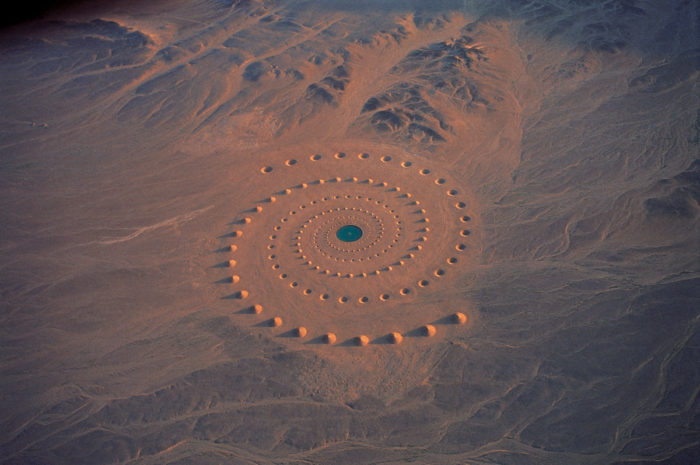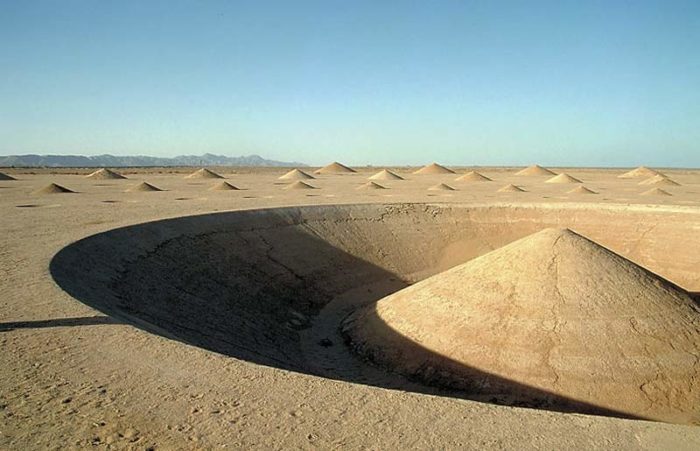‘Desert Breath’: A newly discovered alien city? A sandy crop circle? A geological oddity?
These strange cones and holes look like a bizarre wind formation in the Egyptian desert, until you see the pattern they make from the air.

What are these mysterious cones expanding over an area of 100.000 m2 in the eastern Sahara desert bordering the Red Sea in El Gouna, Egypt? Who is behing this strange cone formation? When was it built? And what was or is the purpose of these mysterious 89 cones in this arid desert?

“Desert Breath” is an earthwork created by Greek artist Danae Stratou and the DAST art team in the mid-1990s, which took several years to create. The construction of Desert Breath was completed in March 1997. Desert Breath still exists becoming through its slow disintegration, an instrument to measure the passage of time. A state of mind, a landscape of the mind.
The construction of “Desert Breath” required the displacement of 8.000 m3 of sand to create precise positive and negative conical volumes. The conical volumes form two interlocking spirals that move out from a common centre with a phase difference of 180o degrees in the same direction of rotation. The centre is a 30-metre diameter vessel formed in a W-shaped section and filled with water to its rim.

For the artists, the desert is a place where one experiences infinity. They chose as point of departure the conical form, as the natural formation of the sand as a material.The work functions on two different levels: from above as a visual image, and from the ground, walking the spiral pathway, a physical experience.

From Wikipedia: “In Egyptian mythology, Sekhmet (also spelled Sachmet, Sakhet, Sekmet, Sakhmet and Sekhet; and given the Greek name, Sacmis), was originally the warrior goddess of Upper Egypt. She is depicted as a lioness, the fiercest hunter known to the Egyptians. It was said that her breath created the desert.” This is the site of the project.
Stare into the eye of the Sahara! Or watch amazing aerial photos of deserts.










De l’eau dans un désert… Gachée nan ?
C’est vraiment magnifique, mais c’est l’art pour l’art…
(bon encore que les quantités ne soient pas astronomiques, ça va, j’exagère peut être un peu…)